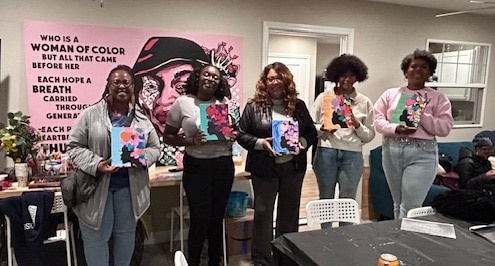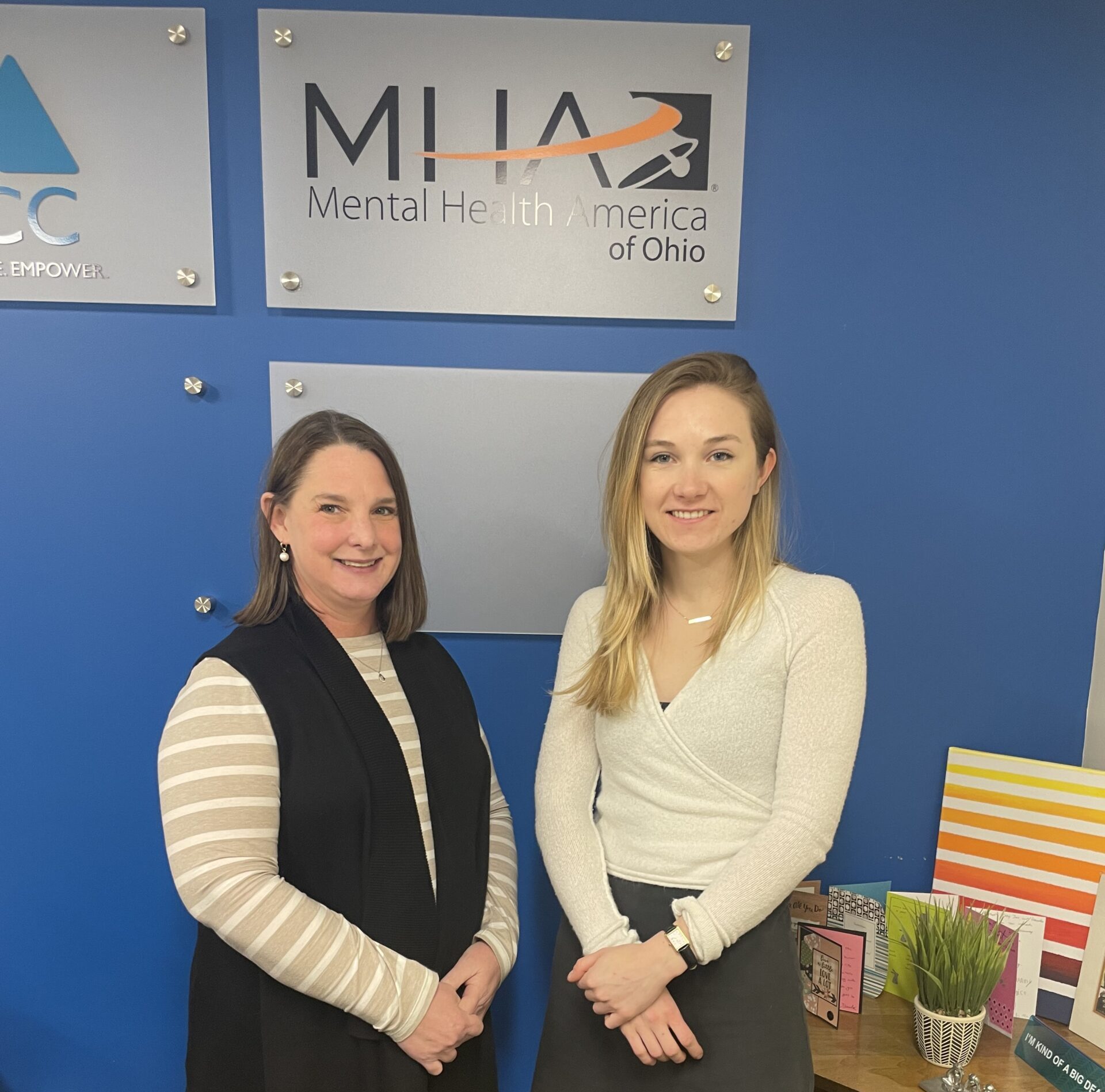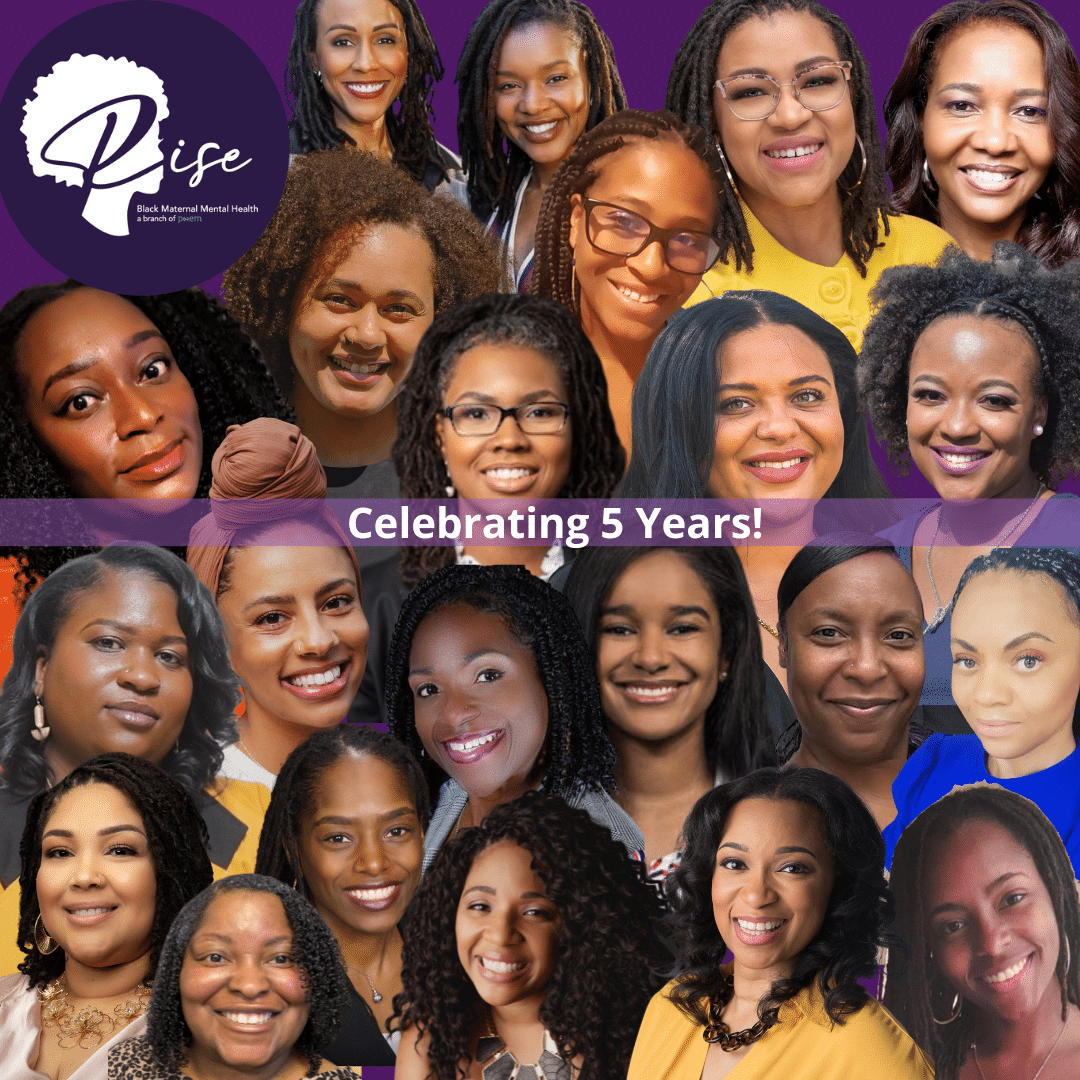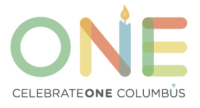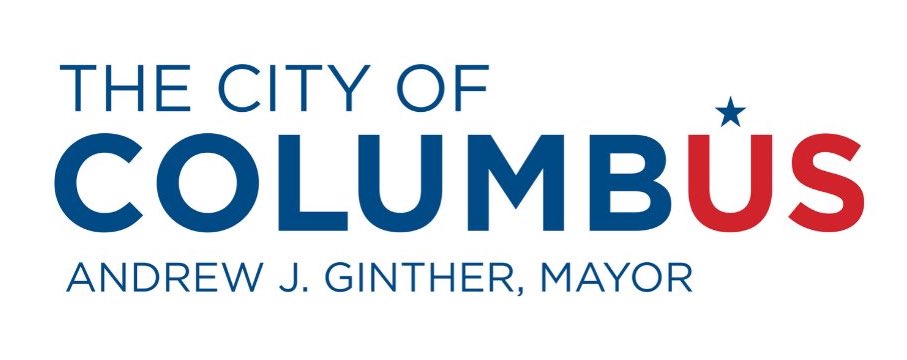“What’s one thing you’d like others to remember about you during this meeting?”
Every other week, Madeline Chilton opens up MHAOhio’s Anxiety Peer Support Group with a question like this as a way to allow participants to be vulnerable and establish that the group is a safe space to share.
“We don’t really know what’s going on in our bodies and our minds a lot of the time,” she says. “We can feel very disconnected, so questions like this really open up the participants and lead to a great discussion.”
Madeline has been co-facilitating the group since 2017 when she decided to use her experience to help others. Madeline remembers having low self-esteem and feeling isolated from her peers since she was 13 years old. Her parents recognized her symptoms of anxiety and depression early on and placed her in therapy, but the experience wasn’t very helpful at the time.
“Growing up on the southwest side of Columbus, I attended predominately white schools. In my youth, whiteness dominated my life. I was shocked by how hard it was for me to open up due to the many years I spent listening to students use microaggressions disguised as compliments. While searching for acceptance, I recall wishing for a short time that I was white,” she says. “There was a sense that I had to share things that people would like and that my authentic experiences wouldn’t be accepted. I felt exhausted from the performance I had to maintain and so kept my early mental health experiences very private.”
Madeline was doing her best to navigate the feelings she was having. Then at age 16 she lost her friend to suicide and hit a very low point. She didn’t see a way out.
“The grieving process felt fast,” she says. “I still had to go to school and deal with family life. I had to go back to normal. But since I was already depressed, I couldn’t get back. I couldn’t manage anymore.”
In the years after losing her friend, Madeline had to find new ways to cope – including returning to therapy – and this is what led her to explore hobbies like journaling and meditation. She also recognized how crucial a community of support was when she was feeling low, which is ultimately what led her to find MHAOhio’s support groups.
“Those living with mental health conditions are extremely empathetic,” she says. “I feel the compassion from all of the members in our meeting and the thought that they put into their responses when someone is struggling.”
Recently Madeline has been speaking up and becoming a vocal advocate in her community for mental health. She wants others to understand that there isn’t just one path to recovering from mental illness and that you don’t have to work through those options alone.
“I know how it feels to be alone,” she says. “I know how it feels not to understand your feelings or not to be able to express them to anybody. I also know how important it is when someone can just listen to what you’re going through. I am here to listen, and I will do everything possible to help.”
Madeline has been a vital member of the MHAOhio community and has been an incredible role model to support group attendees. Stay tuned throughout the month of February as we exclusively feature the experiences and insights of Black community members in honor of Black History Month.



